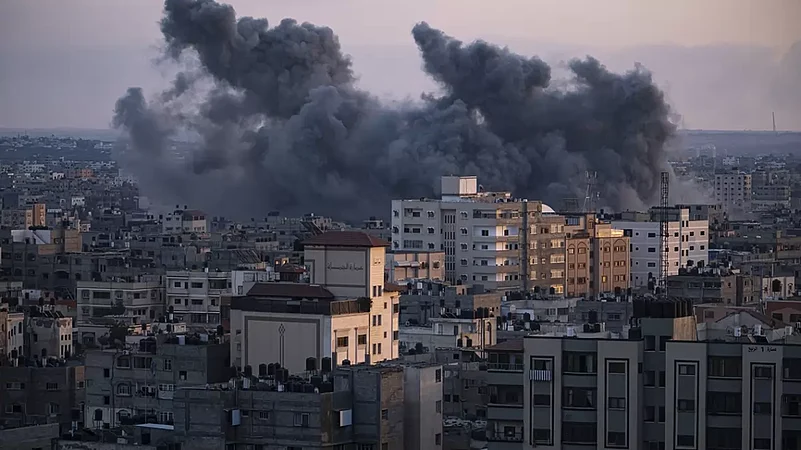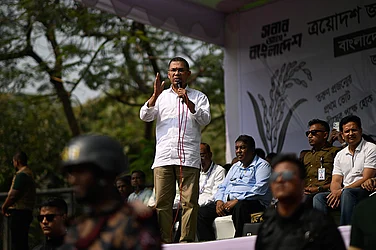Amid the ongoing war between Israel and Hamas, a Palestinian journalist has shared a video saying it could be her last as the battery of her phone is dying and there is no power in Gaza Strip.
As part of its offensive against Hamas after over 1,300 Israelis died in an attack last week, Israel stopped the water and electricity supply to the Gaza Strip. The Israeli military has also continued to pound the region with airstrikes and a ground offensive looks certain.
So far, at least 1,500 Palestinians have died in strikes in Gaza and at least 6,600 have been injured, according to Gaza authorities. The number is expected to rise as strikes continue and Israel's widely-anticipated ground offensive is yet to be launched.
It is in such circumstances that Palestinian journalist Maha Hussaini shared a video saying it could be her last. She further said that around 2 million Palestinians in Gaza are without food supplies and in complete darkness in the absence of electricity.
"Hello world, this is Maha Hussaini, a journalist from the Gaza City. I am talking to you as Israeli bombs are raining down on my city. This might be last video as my phone battery is dying while we are facing an almost complete blackout after Gaza's sole power plant has shut down. Israel has cut all electricity, fuel, food and water supply and has blockaded Gaza Strip, leaving almost 2 million residents with no food supply or electricity and in total darkness and also completely cut off from the world," said Hussaini in the video, shared by her organisation Middle East Eye.
Hussaini also highlighted the threat to her life and to those of other journalists in the video.
She said, "As journalists, we are also facing immense challenges. Reporting on the ground and communicating with our colleagues and also staying connected to the internet. Everything and everyone can be targeted in Gaza. Every day of reporting can be your last day of reporting. We have actually already lost at least nine fellow journalists who had been covering the events on the ground or were at their homes at the time of the attack."
Since the beginning of the Israeli aerial campaign last week, the Gaza authorities have said that civilian buildings and critical infrastructure such as hospitals and schools have also been hit. The United Nations Relief and Works Agency for Palestine Refugees in the Near East (UNRWA) has said that airstrikes have hit at least 88 education facilities, including 18 UNRWA, according to CNN.
The UN agency further said that more than 338,000 Palestinians have been displaced since the start of fighting between Israel and Hamas, which controls Gaza Strip, and at least 218,000 of them are sheltering in UN-run schools.
The humanitarian situation was already dire in Gaza before the fighting began because of a long-running blockade by Israel and Egypt and the diversion of resources by Hamas for militant activities. It has often termed as an 'open-air prison'. Now, as Israeli strikes batter the region, the situation has only got worse. The World Health Organization (WHO) has said that hospitals in the region are "at a breaking point".
CNN further reported, "Earlier Thursday, the International Committee of the Red Cross warned hospitals in Gaza 'risk turning into morgues' as they lose power during Israel's bombardment of the enclave. And shortages of food, water and electricity have already been putting extra strain on medical facilities. The World Food Programme (WFP) said it has plans to work with the UNRWA to 'reach over 800,000 people across Palestine'. On Wednesday, the WFP said it delivered food to over 175,000 displaced people across 88 shelters."


























